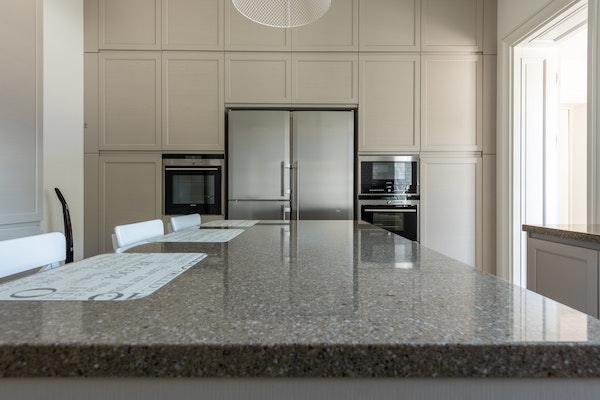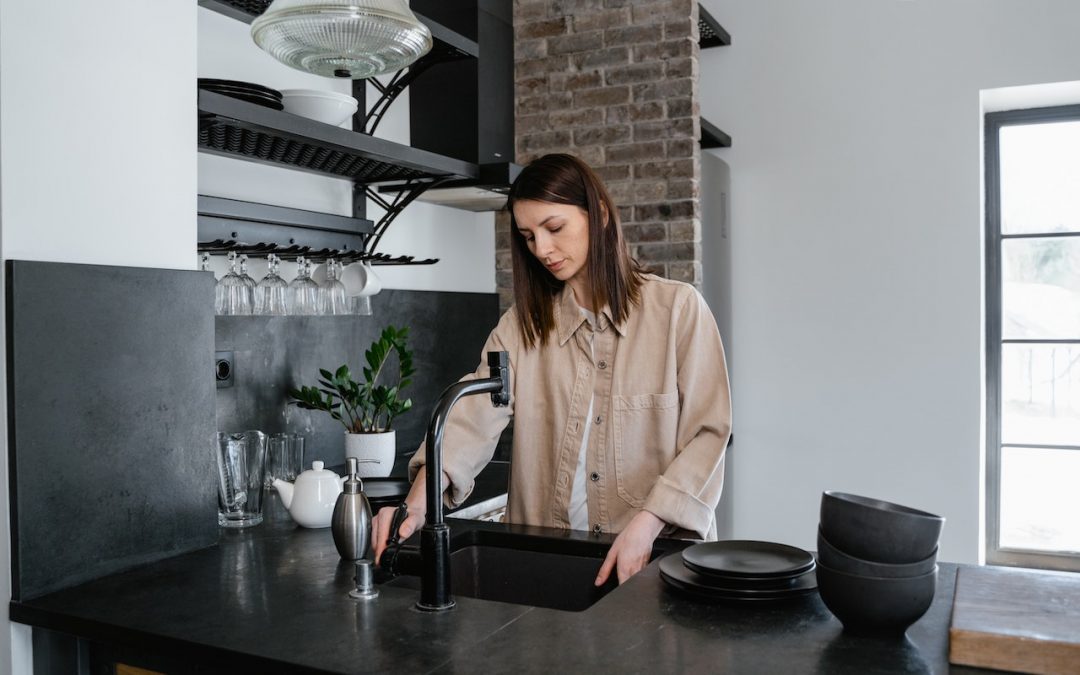One of the most attractive countertop materials available today is quartz. Its longevity, antibacterial properties, and of course its enduring beauty, are reasons why homeowners adore it. But how can quartz countertops be kept looking gorgeous and brand-new for years to come? Care for quartz worktops from Pioneer Granite & Quartz may be simpler than you think because they almost require no upkeep.
This month, Pioneer Granite & Quartz is giving some useful tips and do’s and don’ts for keeping your quartz counters clean and looking their best.
For bigger commercial settings, a floor machine such as a walk-behind scrubber or slow speed buffer can be employed. Make sure to thoroughly clean the floor to remove any cloudy residue that can affect the luster and attractiveness of the surface.
Knives and other metal utensils shouldn’t be used directly on quartz countertops because metal can damage the material. Use a cutting board to prevent scratches when chopping vegetables, slicing bread, or preparing other products with sharp tools.
To remove oil from your quartz surfaces, use a stone care product. Use gentle cleaners rather than abrasive ones to get rid of grease or other kitchen stains. Use a plastic knife to gently scrape away any accumulated grease before using a cleaner.
CLEAN UP SPILLS RIGHT AWAY
Even if manufactured stone, such as quartz, only temporarily resists stains, you shouldn’t leave them unattended for too long. If you do, you still face the danger of harming your countertops. Quartz should be cleaned up right away after a spill. To clean up spills, use a solution
BEWARE OF HEAT DAMAGE
Direct heat exposure can harm quartz countertops. When cooking, protect the countertop surface from direct contact with hot cookware or coffee pots by using trivets or heating pads.
SLICING & DICING
Without using a chopping board, slicing, or dicing. Although quartz has a hard surface, it is not sufficiently resistant to damage from cutting instruments like knives. You prevent unsightly scratches on your quartz counters, chop and dice whatever you want, but make sure to do so on a cutting board.
REGULAR CLEANING
When exposed to liquids like wine, vinegar, tea, lemon juice, soda, or fruits and vegetables, quartz will resist permanent staining; nevertheless, spills must be cleaned up very away to prevent them from drying up. Use a soft cloth and mild dishwashing soap to clean up recent messes.
A nonabrasive sponge (sponges made for nonstick pans are safe and effective) and a little elbow grease are your best choice for dried spills or thick stains. To carefully remove gum, food, nail polish, paint, and other items that solidify as they dry, have a plastic putty knife close at hand.
The bare minimum daily upkeep requirements for your countertop include regular wiping and attention to spills and debris. However, experts also advise performing a more thorough general cleaning on a regular basis. Spray your countertop liberally with a nonabrasive surface cleanser and let it sit for 10 minutes for the best results. Use a non-scratch sponge to remove.
What To Avoid

The to-do’s for maintaining quartz countertops are simple and easy to follow. Following the list of dont’s is very important for maintaining the integrity and attraction of your counter.
GUARDING QUARTZ SURFACE
Quartz products are non-porous, which eliminates the need for sealants and makes them a durable, hygienic option for kitchens or bathrooms. Follow our quartz countertop care and maintenance to make sure you get the most use out of your countertops and that your warranty covers any unforeseen issues.
Select quartz countertops that come with a warranty to make the most of your investment. If a countertop exhibits signs of a manufacturing flaw, a manufacturer’s guarantee will replace or repair it. Quartz is a reliable countertop material when cared for properly and backed by a solid guarantee.
ACIDIC OR ALKALINE CLEANSERS AND ABRASIVES.
To begin with, never use abrasive cleaners, and stay away from scouring pads because they might dull the surface. Fortunately, soapy water typically works. Make sure the gentle cleaner is made expressly for use on quartz if you need to remove surface stains with a bit more force. Be wary of abrasive cleaning agents at both pH extremes. Products like turpentine, drain cleaner, and dishwasher rinse aids are among the offenders. These substances have the ability to dissolve the bindings between quartz and resin, whether they are very acidic or highly alkaline. Quartz may withstand brief contact with gentler alkaline compounds like diluted bleach, but high-pH materials like oven cleansers and intense bleach will harm the surface. If any of the aforementioned items come into contact with your quartz countertop, (Vist out the link for details) immediately and thoroughly rinse the exposed surface with water.
How To Prevent Countertop Damage?
1. Quartz is resistant to temperatures up to 300 degrees Fahrenheit, however it can be harmed by sharp temperature changes. Also referred to as “thermal shock.” It would be best to use crockpots, hot pads, trivets for pans or electric skillets.
2. Knives should not be placed directly on countertops. Quartz is very resistant to scratches, although they can be harmed by being struck hard with sharp items. Cutting boards are advised.
3. Avoid using very acidic or alkaline cleaners, such as turpentine, oven cleanser, bleach, drain cleaners, dishwasher rinse aids, and nail polish remover, when cleaning. If they are spilled, clean up right away with a mild detergent and rinse.
4. Avoid applying pressure or force to your countertops, such as when dropping a big pot, as this can cause the stone to chip or shatter.

